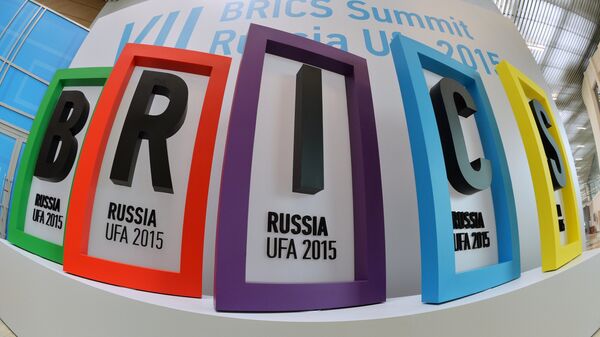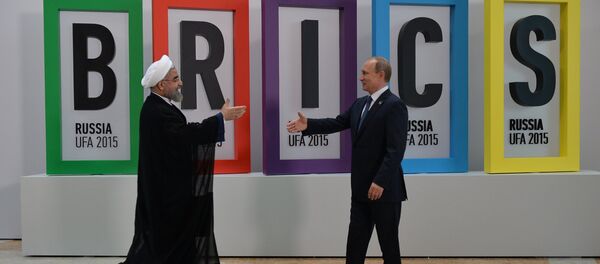The economic researcher pointed out that the SCO's (The Shanghai Cooperation Organization) initiative aimed at joining both India and Pakistan will undoubtedly facilitate China's New Economic Silk Road plan to build a comprehensive infrastructure of high-speed railways and gas and oil pipelines throughout the region.
On the other hand, while the Obama administration is slogging its guts out to split Iran from its Eurasian partners, Tehran will most likely join the Shanghai Cooperation Organization after the embargo is lifted, "something that will give the SCO a major presence in the Middle East geographically," the historian noted.
"With the planned lifting now of US economic sanctions on Iran, this could mean a huge economic deepening of the Eurasian economic space from Shanghai to St. Petersburg to Tehran and beyond, the nightmare scenario of US geopolitical actors like Zbigniew Brzezinski or Henry Kissinger," Engdahl underscored.
In addition to its gradual economic expansion the BRICS/SCO bloc is also increasing its efforts of combating terrorism in the region and dealing with the security problems of its member states.
Remarkably, the nations have recently emphasized "the importance of reaffirming the UN Charter and condemned unilateral military intervention, a clear reference to guess who?" the historian noted ironically.
At the same time the Russia-initiated Collective Security Treaty Organization (CSTO) has also acquired a new meaning.
"Today, the CSTO is emerging as a far more serious organization and a means by which Russia can legitimately provide direct security expertise to weaker states inside the Eurasian Economic Union such as Kyrgyzstan or Armenia, both of whom have been targets of new US-sponsored Color Revolutions to spread chaos across the emerging Eurasian economic space," the historian pointed out.
But how will NATO and Washington respond to this challenge to US global hegemony?
While the Pentagon is beating the war drums, labeling Russia an "existential threat" to US security, the Obama administration is pushing ahead TPP/TTIP trade projects, which actually offer a "geopolitical dead end" to both Asian and European nations, according to the economic researcher.
"Both trade proposals are a desperate attempt by Washington strategists and their corporate backers in agribusiness such as Monsanto or the pharmaceutical industry to dominate world trade and finance," he remarked.
Washington has obviously taken the wrong path and the only way out is to significantly reconsider US domestic and foreign policy, Engdahl believes. "Once a people as once-wonderful as the American people lose all that which made them good, it takes a conscious decision and determination to regain that goodness," the historian emphasized.





